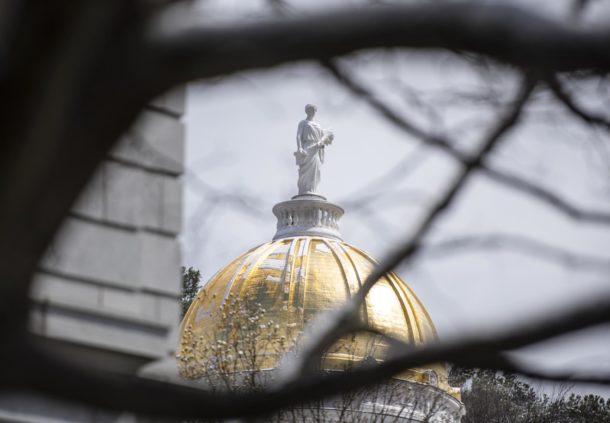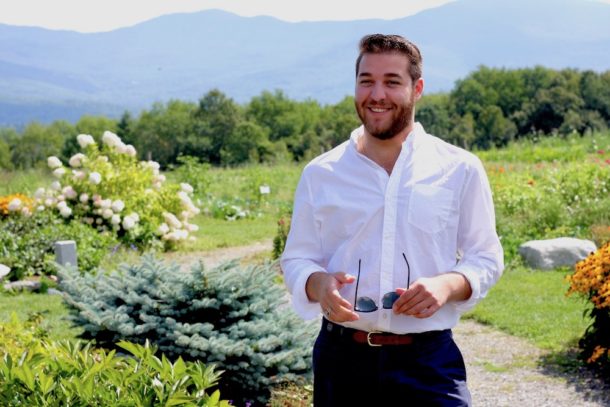
Jon Margolis is a political columnist for VTDigger.
As the general election campaign begins, the Vermont Democratic State Committee would seem to be in some disarray. Its leader, Terje Anderson, has announced that he is resigning. Its communications director, R. Christopher Di Mezzo, has already quit.
Not, at this point, an ideal situation for a political apparatus.
But for a few reasons, not much of a disadvantage. The most obvious reason is that at least Vermont Democrats do have an apparatus. If the Republicans have one, it’s hard to find.
On its web site, the Republican State Committee lists no staff. It does display a phone number which no one answers and an email contact to which no one replies.
Replying to a phone call via “messages,” Republican State Committee Chair Deb Billado said she works full time without compensation and she named former House member Paul Dame as the party’s “recruitment coordinator.” She also said the state committee has “”a couple field coordinators, and admin staffer and a writer or two.”
She would not provide any name other than Dame’s, nor would she specify how many people are on the committee’s payroll.
It isn’t that the Vermont Republican State Committee is moribund. It raises and spends money. But according to the most recent campaign finance filings, not only much less than the Democrats, also quite a bit less than the Progressive Party.
So why is the Republican candidate for governor, incumbent Phil Scott, the overwhelming favorite to win reelection?
VTDigger is underwritten by:
Maybe because state party apparatuses aren’t that important – less important than they used to be all over the country, never very important in Vermont.
“Vermont politics have always been so personalized that a good candidate didn’t need organizational back-up to win public office,” said Garrison Nelson, emeritus professor of political science at the University of Vermont.
Until the early 1960s, Nelson said, Vermont “had a one-party system for a century.” The Republicans “had to organize everything,” he said, but they didn’t need anything resembling a modern political organization to do it. In that simpler, smaller, more rural state, geography was more central than ideology. A major political principle was “the mountain rule,” under which Republican leaders made sure that if the incumbent governor (a Republican, of course) was from east of the Green Mountains, his successor would be from their west.
And throughout much of the 20th Century, Vermont politics was “organized” along religious lines. Most Democrats were Catholics; most Catholics were Democrats. Republicans were more likely to be Protestants, and vice versa. There were more of them.
It isn’t that a party structure is completely irrelevant. One reason Vermont Democrats think they have a chance to increase their already huge majority in the House of Representatives (95 Democrats, 43 Republicans, seven progressives, five independent) is that the Democratic State Committee has a six-person staff (names available on its web site, as is common), one of them working to assist House candidates.

With few exceptions, Vermont legislators have no aides. Considering how small each House district is, hiring a professional political operative would seem inefficient, if not prohibitively expensive. So the party provides that expertise
But while this advantage could help Democrats win legislative seats, it is unlikely to have any impact on statewide races. The contest between Scott and David Zuckerman, who has both the Democratic and Progressive nominations, will be just that: a contest between the two candidates. It will be determined by their reputations, their performance in debates, the effectiveness of their television and online advertising, and (as always) events beyond the control of either of them.
The relative insignificance of state party organizations is not confined to Vermont. Increasingly, candidates and advocacy groups can raise money and deliver their messages on line and on the air. Half a century ago, television made political campaigns more personal, less party-dependent. The internet extended that trend.
“In general in the U.S. we have had a pretty weak party system compared to other countries,” noted Josh Wronski, the Progressive Party’s executive director. And even in the U.S., he said “parties used to have more control.”
As is true in other pursuits, politics has become increasingly specialized and professionalized. One of those professionals is Di Mezzo, the (now) former Democratic spokesman, who said there is “a growing campaign culture” and a “huge talent pool” of skilled political operatives who move from campaign to campaign, sometimes for candidates, sometimes for causes.
Some of these are individual freelancers; others work for political consulting firms. Either way, they provide much of the staffing for candidates and advocacy groups, making them less dependent on state party organizations.
One sign of the weakness of the parties in Vermont is the unusual if not bizarre phenomenon of one person running for several offices at one time. A disciplined party could and probably would find some way to avoid that.
No wonder, then, that it is Vermont’s less disciplined parties – Republicans and Progressives – that have been thus pestered. They aren’t less disciplined because their leaders are less competent. But the parties have less clout. The Progressives have no realistic chance of winning a statewide race. With the exception of Scott, neither do the Republicans.
Two years ago H. Brooke Paige ran for six offices in the Republican primary. He won all of them, but then stepped aside from all but the Secretary of State’s slot, losing that in November to incumbent Jim Condos.
VTDigger is underwritten by:
This year, Paige won the Republican primaries for secretary of state and attorney general, and perennial candidate Cris Ericson ran for six Progressive Party nominations. She lost for governor (to Zuckerman) but won the other five.
This kind of thing has happened in other states. But not in many and not often. “I would not be surprised to hear that we are an outlier in this regard,” said Will Senning, the director of elections and campaign finance for the Secretary of State’s Office. In some states, it is against the law. Vermont legislators have discussed emulating them.
Perhaps a good idea. Politics is absurd enough without tolerating its use as a personal therapeutic device.
